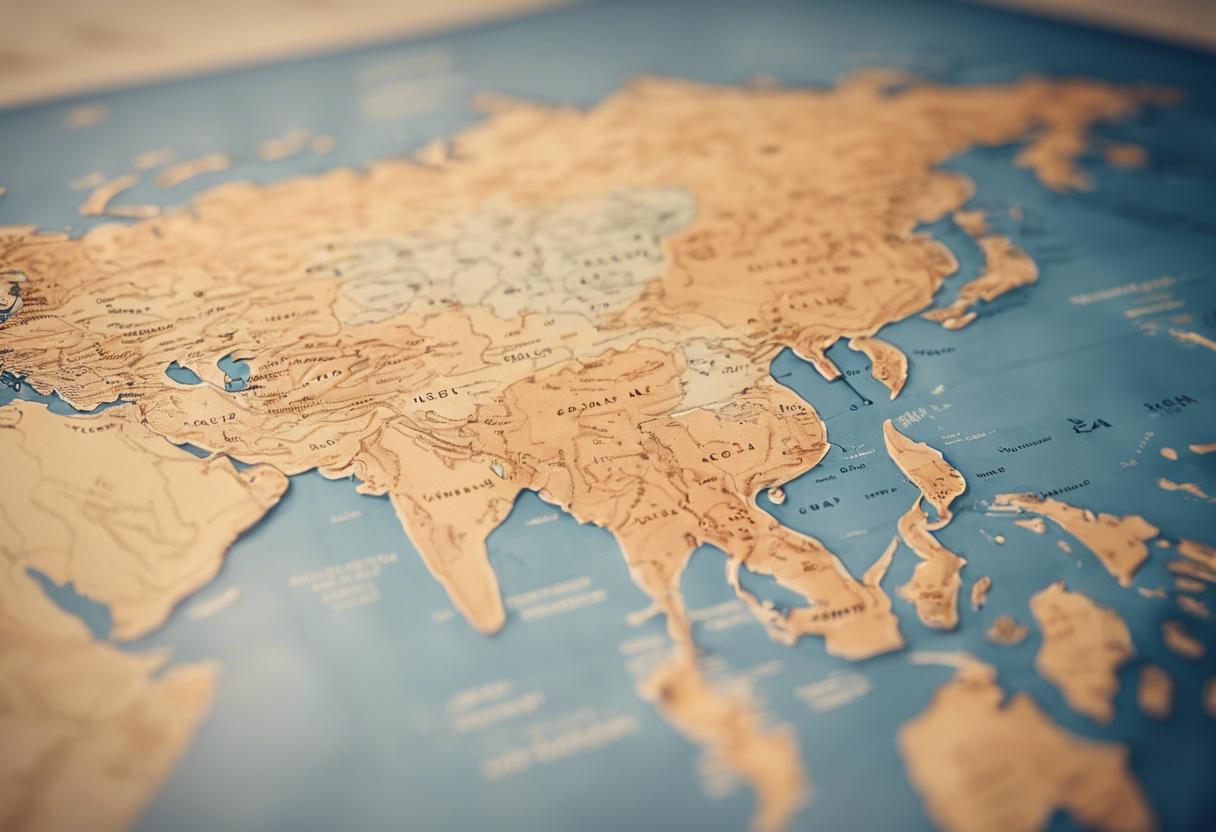There are noticeable similarities and distinctive contrasts when comparing the ongoing distressing events in Palestine and Ukraine, and the inevitable dissimilarities found in any two confrontations. This comparison inevitably raises concerning questions about the world’s uniformity and dishonesty in dealing with these issues.
Both situations fundamentally revolve around one nation seizing territories that rightfully belong to another. The hostile annexation of Ukrainian lands by Russia couldn’t have been more blatant. The armed encroachment on vast expanses of Ukrainian soil was immediately followed by an edict from Putin’s administration laying claim to various Ukrainian territories that were henceforth to be regarded as Russian soil. The ambition of Putin’s war strategy extends to maintaining Russia’s dominance over the entirety of Ukraine permanently, thereby depriving the Ukrainian citizens of their liberty and the safeguarding of western values.
Contrastingly, Israel’s attack on Gaza wasn’t as flagrant, being in retaliation to the outrageous Hamas acts of savagery back in October. But the backdrop to Israel’s present course of action runs much deeper than the immediate provocation by Hamas. The fundamental problem, shared with Ukraine, remains Israel’s refusal to acknowledge Palestinians’ indisputable right, equal in all respects to the Israeli’s right, to ownership of their homeland.
The extent of this injustice is notably evident in the enormous number of Israeli settlers, possibly nearing three-quarters of a million, who have been economically and militarily aided to establish residences on occupied Palestinian territories to which Israel has no valid historical, moral, or legal claim. Further evidence of this injustice lies in the years-long, systematic violence and unfairness visited upon Palestinians inhabiting the Occupied Territories, a course that began much earlier than last year’s Hamas acts of savagery and has continued unabated ever since. The use of biblical names “Judea and Samaria” by Israeli representatives when referring to the occupied Palestinian territories mirrors Putin’s mindset when claiming Ukraine’s territories.
Both Putin and Netanyahu are on unconscionable campaigns, and while the similarity is clear, the world’s response to both men is divergent. This difference in approach is seen clearly with the US’s insistence on Israel’s improvements in the humanitarian conditions in Gaza, or face risking a loss of military support.
The common aspects between the two wars are largely due to the significant influence exerted by Binyamin Netanyahu and Vladimir Putin, two figures whose personal decisions have played a fundamental role in leading their nations to their current state and appear steadfast in prolonging the conflicts for their individual gain and survival. The global community and even his own nation have criticised Netanyahu for not exhibiting the necessary flexibility to establish a ceasefire. His own perception of self and political survival seem to rank higher than the interests of Israel, which includes the safe return of the remaining captives, or improving his country’s currently tarnished global image.
Commenting on internal discussions within Russia remains challenging due to the scarce democracy, which includes the harsh suppression of war critics. In spite of this, Ukraine continues to be Putin’s personal mission where his standing and future are reliant on its resolution.
It is also significant that the International Court of Justice has engaged with facets of both situations, such as affirming the apparent reality that Israel’s occupation of Palestinian territories is unlawful. The International Criminal Court has brought out a warrant of arrest against Putin and is contemplating one for Netanyahu.
The ruthless attack on innocent civilians and community establishments in Ukraine, Gaza, and now Lebanon, showcases a further inhumane similarity between the two conflicts. The daily media coverage from Gaza is almost too painful to witness, with innumerable civilians facing pain and death, victims who are just as blameless as those brutally attacked by Hamas the previous October. The relentless attack on civilian establishments in Ukraine resulting in the irrevocable loss of human life is just as horrifying, illegitimate, and heart-wrenching.
Interestingly, Russia describes its war as a “special military operation”, while Netanyahu labels what appears more like a “special military operation” in Gaza as a “war”, where one faction is overwhelmingly militarily superior and most victims are women and children.
The general similarities between the Palestinian and Ukrainian conflicts create a substantial problem of consistency for the international community. By failing to maintain consistency, nations expose themselves to accusations of double standards.
Numerous nations across the globe, including a slight percentage of the Irish populace professing to be anti-war, promptly decry Israel but conveniently overlook the war instigated by Putin. Take Iran as an instance, it vocally opposes the Israeli-Gaza conflict but clandestinely furnishes weaponry to Putin. Conversely, staunch backers for Ukraine, particularly the US and select European nations, provide comprehensive military and financial backing but express willingness to endure the extremely disproportionate hostilities by Israel in Gaza. They refrain from utilising the tools at their disposal that could efficiently cease the chaos and devastation.
It’s praiseworthy to experience support for Ukraine in its pivotal fight for existence, irrespective of where it originates from. Likewise, endorsing an instantaneous ceasefire in Gaza and vigorous international pressure to procure justice for Palestinians is entirely admirable. Nevertheless, adopting a uniform policy towards both disputes, much like Ireland’s stance, would enhance the credibility and effectiveness of the support in both scenarios. Bobby McDonagh, an ex-ambassador to London, Rome, and Brussels, shares these views.

